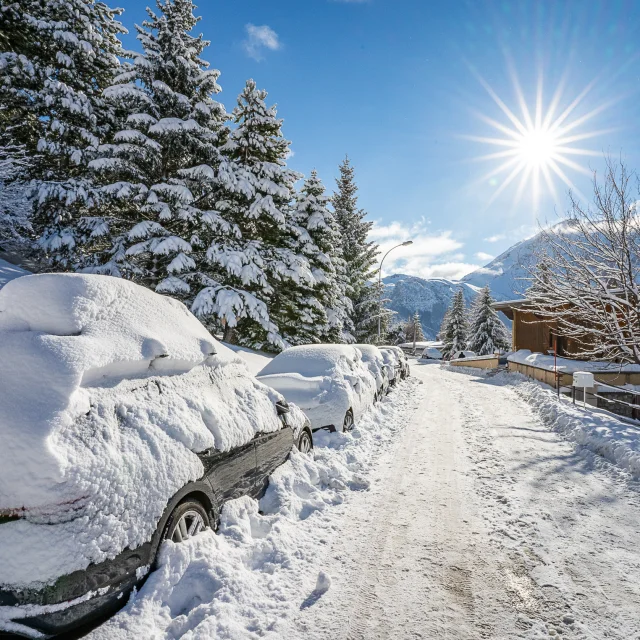Tourist accommodation" framework data
What is a furnished tourist property?
Furnished tourist accommodation is a furnished house, flat or studio, for the exclusive use of the tenant, rented to a visiting clientele who stay there for a day, a week or a month and who do not take up residence there (Code du Tourisme – Art D324-1).
The rental period for any one person may not exceed 90 days or 12 consecutive weeks (Art 1-1 Loi Hoguet n°70-9 du 2 janvier 1970).
You must declare your furnished accommodation (whether or not it is classified) to the local council.
All you have to do is fill in Cerfa form no. 14004 and hand it in or return it to the Town Hall with your full contact details (including your e-mail address), or make the declaration online at https://www.declaloc.fr/.
Taxation
You want to rent out a furnished tourist accommodation property: the legal and tax regime you choose as a furnished-rental property owner will need to take a number of factors into account. Specialist advice from a chartered accountant, a management centre, a tax lawyer or your tax office may be useful.
It should be noted that in addition to these compulsory taxes, there are other charges (tourist tax, council tax, etc.).
The main types of tax are
– direct income tax or corporation tax
– VAT, if your main business is subject to VAT
– local taxes: business property tax (cotisation foncière des entreprises – CFE)
Tourist tax
Proceeds from the collection of this tax are earmarked for expenditure to promote tourist numbers in the municipality or grouping, or for expenditure on measures to protect and manage natural areas for tourism purposes.
This tax was introduced by the law of 13 April 1910 to provide local authorities with additional resources to promote tourism and improve tourist facilities.
Its application and amount are set by the commune of Orcières, which carries out actions to promote tourism.
You collect it, then pay it to the commune’s tax collector.
Additional tax
An additional tax of 10% to the tourist tax has been introduced by deliberation for the benefit of the Hautes-Alpes departmental council.
The additional tax is established and collected in the same way as the actual or flat-rate tourist tax to which it is added.
It is collected on the territory where it applies by the municipalities and public establishments for inter-municipal cooperation, which collect the tax and pass it on to the beneficiaries.
The fixed rates for tourist tax shown above include the additional tax.
The services of the Commune d’Orcières are entirely at your disposal to inform and assist you with the collection, declaration and payment of the tourist tax.
If you have any questions about the tourist tax, please contact us:
By e-mail: orcieres@taxesejour.fr
By telephone
04.76.09.14.21 / 06.71.83.83.25
https://orcieres.taxesejour.fr/
Declaration of rental income
Renting out furnished accommodation is considered to be a commercial activity, not a form of property income. Income from letting out furnished accommodation or bed and breakfast is subject to income tax, in the Industrial and Commercial Profits (BIC) category. The tax regime depends on the total amount of turnover (excluding VAT) that the landlord achieves each year if he is liable for VAT, or if he is not liable for VAT on turnover (including VAT) (the turnover limits are updated each year).
The French Tax Code also distinguishes between simple furnished lettings and classified furnished lettings (see table below).
There are 4 tax regimes (see table below):
- The micro-enterprise scheme (micro BIC, the most common scheme used by lessors),
- The simplified actual scheme,
- The normal actual system,
- The auto-entrepreneur scheme.
The Lemeur Act of 19 November 2024 toughens the micro-BIC scheme, which is very popular with occasional hirers. From 2025:
- For classified furnished accommodation (such as gîtes or chambres d’hôtes), the tax allowance will fall from 71% to 50%, with the annual income ceiling lowered from €188,700 to €77,700.
- For unclassified furnished accommodation (standard rentals on Airbnb), the tax allowance falls to 30%, with a ceiling on annual income of €15,000 (compared with €77,700 previously).
These new rates will apply to rental income received from 1 January 2025. There is another blow for LMNP investors. They will no longer be able to deduct the property’s depreciation when calculating capital gains on resale.
For full details of how to file your tax return for furnished tourist accommodation, go to: https://www.service-public.fr/particuliers/vosdroits/F32744
VAT
In principle, rentals of furnished accommodation are exempt from VAT. You will be subject to VAT (7%) for hotel or hotel-related accommodation services (art. 261-D-4°b amended by the 2002 Supplementary Finance Act, no. 2002-1576 of 30 December 2002) if you offer at least 3 of the following 4 services as part of the rental: breakfast, cleaning of the premises during the stay, supply of household linen, reception of customers, even if not personalised.
Renters liable for VAT, whose turnover is less than €81,500 excluding VAT (classified furnished accommodation) or €32,600 (unclassified furnished accommodation), are automatically exempt from basic VAT, irrespective of their tax regime; however, they may waive the exemption in favour of VAT taxation.
Please note: as long as you are exempt from VAT, you cannot reclaim it on investments (renovation or refurbishment work) or on goods purchased for the furnished property or properties. Invoices must be marked “VAT not applicable”.
Local taxes
These comprise property tax, council tax and the Cotisation Foncière aux Entreprises (CFE).
All property owners are liable for the taxe foncière: if you are an owner or usufructuary, you will be liable for the taxe foncière sur les propriétés bâties (property tax on built-up property) for the buildings you own on 1 January of the tax year, with the exception of property owners who can benefit from a two-year exemption if they invest in new property.
Council Tax: you are liable for this tax only if the rented premises form part of your personal dwelling (article 1459-3 of the General Tax Code) and if you retain use of them, as your principal or secondary residence, outside the rental periods.
CFE: you are liable for CFE tax, which replaced business tax. However, there are a number of exemptions and arrangements:
– when you rent out your personal home (principal or secondary, in whole or in part) on an occasional basis. A personal dwelling means that the owner retains physical and/or legal control of it outside the rental period. Unless expressly agreed otherwise by the local authorities, there can be no double taxation of CFE and taxe d’habitation for the rental of a personal dwelling. The furnished premises will be taxed as a whole for council tax.
– when your furnished letting is classified, unless the local authorities decide otherwise.
See the notices in the Bulletin officiel des Finances Publiques – Impôts :
– CFE: http://bofip.impots.gouv.fr/bofip/2524-PGP.html
– Council tax: http://bofip.impots.gouv.fr/bofip/546-PGP.html
Calculation of contributions:
These rates are applied to the tax base, which is determined by the cadastral income, which varies according to the rental value of the property, the discount coefficient and the revaluation coefficient.



